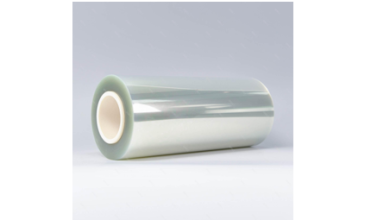Top 5 Reasons Why Homeowners Need Loft Insulation: A Lead Generation Perspective

In today’s competitive market for Home Improvement leads and Loft insulation leads, understanding the pivotal role of loft insulation can significantly enhance your strategy. Homeowners are increasingly prioritizing energy efficiency and cost savings, making loft insulation a prime consideration for both environmental consciousness and financial prudence. At Axowa, we recognise the critical importance of leveraging these trends to attract and convert leads effectively. This article explores the top reasons why homeowners need loft insulation, providing insights into how these benefits can be harnessed to drive lead generation strategies.
Importance of Home Improvement leads and Loft insulation leads
In the dynamic landscape of home improvement, loft insulation stands out as a transformative investment. It addresses fundamental concerns of modern homeowners by enhancing energy efficiency and reducing heating costs, aligning perfectly with the broader goals of sustainability and economic efficiency. The demand for effective insulation solutions has grown exponentially as individuals and businesses alike seek practical ways to mitigate environmental impact while saving on utility expenses. This dual appeal makes loft insulation not only a practical solution but also a compelling selling point in the competitive market for home improvement leads.
Overview of the article structure
This article is structured to delve into various aspects of loft insulation, highlighting its multifaceted benefits and its strategic importance in lead generation efforts. Beyond energy efficiency, we will explore its impact on health and comfort, its environmental implications, and how businesses can leverage these advantages to attract and convert leads effectively. By understanding the intrinsic value of loft insulation, businesses can
Energy Efficiency and Cost Savings
Energy Efficiency: Key Benefit of Loft Insulation
Loft insulation is pivotal in enhancing energy efficiency within homes, offering substantial benefits to both homeowners and the environment. By creating a thermal barrier, loft insulation effectively reduces heat loss during colder months and prevents overheating in summer. This regulation of indoor temperatures not only optimizes comfort but also reduces reliance on heating and cooling systems. As a result, homeowners can significantly lower their energy bills, making loft insulation a wise long-term investment.
Reduced Heating Costs and Environmental Impact
One of the primary advantages of loft insulation is its ability to slash heating costs. By preventing heat loss through the roof, insulation minimizes the need for constant heating, leading to noticeable savings on energy bills throughout the year. Moreover, reduced energy consumption translates into a smaller carbon footprint, aligning with global efforts towards sustainability. This dual benefit not only supports environmental conservation but also enhances the overall value proposition of a well-insulated home.
Long-term Financial Savings
Beyond immediate cost reductions, loft insulation offers substantial long-term financial savings. The initial investment in high-quality insulation pays off over time through lower energy expenditures and increased property value. Homeowners can enjoy enhanced comfort year-round while simultaneously boosting the market appeal and resale potential of their properties. This financial prudence resonates strongly with prospective buyers and renters alike, underscoring the enduring value of energy-efficient home improvements.
Health Benefits and Comfort
Improved Health and Comfort with Proper Insulation
Proper insulation in the loft area significantly enhances the health, comfort, and overall livability of a home. It ensures consistent indoor temperatures year-round, which is crucial for maintaining optimal comfort levels and supporting respiratory health.
Temperature Regulation and Air Quality
Effective loft insulation helps regulate indoor temperatures by reducing heat loss in winter and heat gain in summer. This not only creates a comfortable environment but also improves indoor air quality by minimizing dust, pollen, and pollutants entering the home.
Health Benefits
Consistent indoor temperatures and improved air quality due to loft insulation contribute to better respiratory health, reducing the risk of allergies and respiratory issues for occupants, particularly children and the elderly.
Noise Reduction Benefits
Loft insulation also provides noise reduction benefits by absorbing sound vibrations, which enhances the tranquility of indoor spaces. This is especially beneficial for homes located in noisy environments or urban areas, promoting better sleep and overall well-being.
Comfort and Livability
Beyond temperature and noise control, loft insulation enhances overall comfort by reducing drafts and maintaining stable indoor temperatures. This creates a more pleasant living environment and increases the property’s appeal and value.
Environmental Impact and Sustainability
Environmental Benefits of Loft Insulation
Loft insulation offers substantial environmental benefits by enhancing energy efficiency and reducing carbon emissions associated with residential energy use. This section explores how loft insulation contributes to sustainability and environmental responsibility.
Reducing Carbon Footprint
One of the primary advantages of loft insulation is its ability to significantly reduce the carbon footprint of households. By improving thermal efficiency, insulation reduces the energy needed for heating and cooling, thereby lowering greenhouse gas emissions. Studies consistently demonstrate that well-insulated homes can make a substantial impact in mitigating climate change by reducing carbon dioxide emissions annually.
Energy Conservation and Resource Efficiency
In addition to carbon reduction, loft insulation promotes energy conservation and enhances resource efficiency. Homes with effective insulation require less energy to maintain comfortable indoor temperatures throughout the year. This not only saves money for homeowners but also conserves natural resources and diminishes reliance on non-renewable energy sources such as fossil fuels. Investing in insulation supports sustainable building practices and community-wide efforts towards energy independence.
Sustainable Living Practices
Investing in loft insulation aligns with sustainable living principles by fostering environmental stewardship and minimizing ecological impact. Energy-efficient homes contribute to local and global goals of energy conservation and environmental sustainability. Furthermore, they deliver long-term economic benefits through reduced energy costs and increased property value, making them a prudent investment for homeowners and communities.
Government Incentives and Policy Support
Government incentives and policies play a pivotal role in promoting energy-efficient upgrades like loft insulation. These initiatives often include grants, rebates, or tax incentives aimed at enhancing accessibility and affordability for homeowners. By leveraging these programs, homeowners can accelerate the adoption of energy-saving technologies while supporting broader sustainability objectives at both national and local levels.
Long-Term Resilience and Economic Benefits
Beyond environmental advantages, loft insulation enhances the long-term resilience and economic stability of homes. Energy-efficient properties are better equipped to withstand fluctuations in energy prices and regulatory changes, ensuring sustained affordability and comfort for residents. By investing in insulation, homeowners not only reduce their environmental footprint but also secure a sustainable future for themselves and future generations.
Attracting and Converting Leads with Loft Insulation
Strategic Use of Loft Insulation Benefits
Harnessing the benefits of loft insulation is not only advantageous for homeowners but also serves as a powerful tool for generating leads in the home improvement industry. This section explores effective strategies for attracting and converting leads by highlighting the value of loft insulation.
Marketing the Energy Efficiency Advantage
Promoting the energy efficiency benefits of loft insulation can resonate strongly with environmentally conscious homeowners. Emphasize how insulation reduces heating and cooling costs, making homes more affordable to maintain while reducing carbon footprint. Highlighting these savings can attract leads looking to improve their home’s efficiency and lower utility bills.
Highlighting Cost Savings
Cost-saving benefits are a key driver for many homeowners considering loft insulation. Use case studies or examples to demonstrate potential savings over time, illustrating how the initial investment in insulation pays off through reduced energy expenditures. This financial rationale can be compelling for leads seeking long-term economic benefits from their home improvement investments.
Enhancing Comfort and Health Benefits
Beyond financial savings, emphasize the improved comfort and health benefits of loft insulation. Discuss how insulation regulates indoor temperatures, reduces drafts, and improves air quality, creating a more comfortable and healthy living environment for residents. Highlighting these aspects can appeal to leads prioritizing their family’s well-being and comfort.
Leveraging Environmental Consciousness
Increasingly, homeowners are motivated by environmental considerations when making home improvement decisions. Position loft insulation as a sustainable choice that reduces carbon emissions and supports green living. Incorporate eco-friendly messaging into marketing materials to attract leads who value sustainability and want to minimize their home’s environmental impact.
Utilizing Data and Analytics
Utilize data and analytics to target leads effectively. Identify homeowners in your target market who are likely to benefit most from loft insulation based on their property type, location, and energy usage. Tailor marketing campaigns to address specific pain points and highlight how insulation can address these needs effectively.
Call to Action and Lead Conversion
Include clear calls to action (CTAs) in marketing materials to encourage leads to take the next step. Offer free consultations, energy audits, or estimates to demonstrate expertise and build trust. Provide compelling reasons for leads to inquire further or schedule a consultation, emphasizing the immediate benefits and long-term value of loft insulation.
FAQs
Why is loft insulation important for homeowners?
Loft insulation is crucial because it enhances energy efficiency by reducing heat loss during winter and heat gain in summer. This not only lowers energy bills but also improves home comfort and reduces environmental impact.
How does loft insulation contribute to lead generation in the home improvement sector?
Promoting loft insulation’s benefits, such as energy savings, improved comfort, and environmental responsibility, can attract leads interested in enhancing their homes’ efficiency and sustainability.
What are the cost savings associated with loft insulation?
Investing in loft insulation can lead to significant savings on heating and cooling costs over time. Homeowners can recover the initial investment through reduced energy bills and potentially increase property value.
How can I determine if my home needs loft insulation?
Consider factors such as the age of your home, existing insulation levels, and energy bills. An energy audit or consultation with a professional can help assess insulation needs and potential savings.
Are there government incentives or rebates available for loft insulation?
Many governments offer incentives, grants, or tax credits to encourage energy-efficient home improvements, including loft insulation. Check local programs to see if you qualify for financial assistance.





